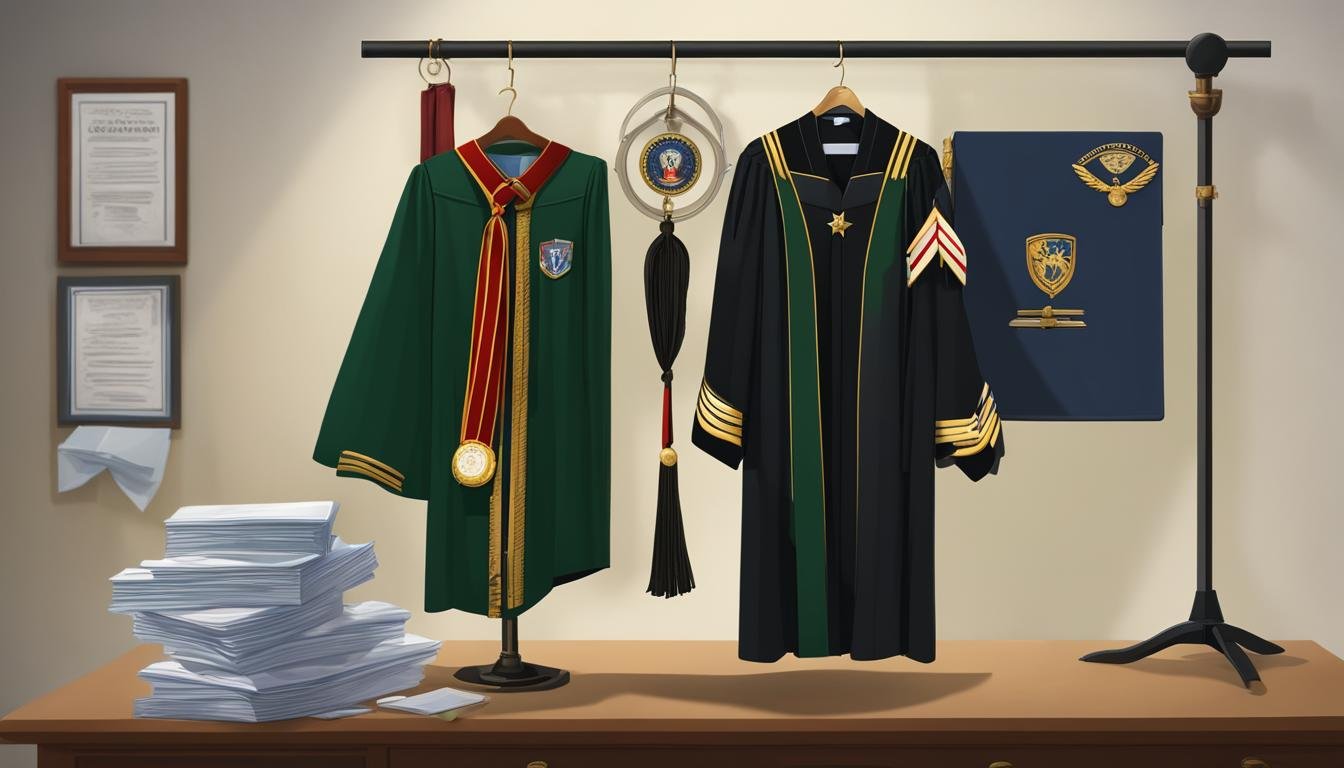As a veteran transitioning from the military to college, it’s important to be prepared for the unique challenges you may face. While you have many advantages, such as discipline and life experience, adjusting to the freedom of a college campus can be jarring. However, there are strategies you can implement to navigate this transition successfully.
One advantage veteran students have is higher GPAs and higher graduation rates compared to traditional college students. This can be attributed to their age, self-motivation, discipline, and leadership skills. However, challenges such as being a first-generation college student, managing finances and family responsibilities, and dealing with physical and emotional challenges like traumatic brain injuries and post-traumatic stress may arise.
Fortunately, there are resources available to help veterans ease their adjustment, including veterans services on campus, organizations like Student Veterans of America, and programs like VITAL that support physical and mental health. By utilizing these resources and planning ahead, veterans can ensure a smoother transition to college life.
Key Takeaways
- Implement strategies to navigate the transition from the military to college successfully.
- Veteran students have advantages such as discipline, self-motivation, and leadership skills.
- Challenges may arise, including being a first-generation college student and managing finances and family responsibilities.
- Utilize resources like veterans services on campus, Student Veterans of America, and programs for physical and mental health support.
- Plan ahead to ensure a smoother transition to college life as a veteran.
Tips for a Successful College Application and Transition for Veterans

If you’re a veteran transitioning from the military to college, you may be wondering how to navigate the application process and ensure a smooth transition. Here are some transitional tips and college success strategies specifically tailored for veteran students:
- Build a support system early: Transitioning to college can be challenging, so it’s important to have a support system in place. Reach out to friends, family, or fellow veterans who can provide guidance and support throughout your college journey.
- Set clear goals: Define your reasons for going to college and your desired career path. This will help you stay motivated and focused on your academic and professional aspirations.
- Understand your benefits: Familiarize yourself with the Post-9/11 GI Bill and other financial aid options available to you as a veteran. Knowing your benefits will help you make informed decisions about financing your education.
- Choose a veteran-friendly college: Look for institutions that prioritize supporting veteran students. Consider factors such as available financial aid, academic assistance, and career resources specifically tailored for veterans.
- Consider online or distance learning: Explore remote learning options that can provide flexibility to balance your other responsibilities. Online courses can allow you to study at your own pace and provide a supportive learning environment for veterans.
- Determine transferable credits: Investigate how your military experience can translate into college credits. Many colleges offer credit for military training and experience, which can shorten the time it takes to earn your degree.
- Apply for financial aid: In addition to utilizing your GI Bill benefits, explore grants, scholarships, and other forms of financial aid to cover any remaining expenses. Many organizations offer scholarships specifically for veteran students.
By following these transitional tips, you can increase your chances of a successful college application and a smooth transition to college life.
Table: Veteran-Friendly Colleges
| College | Location | Services Provided |
|---|---|---|
| University of XYZ | City, State | Financial aid assistance, dedicated veteran support office, career counseling |
| ABC Community College | City, State | Transfer credit evaluation, veterans club, academic tutoring |
| DEF University | City, State | On-campus mental health services, networking events for veteran students, job placement assistance |
Table: Recommended veteran-friendly colleges offering support services for veteran students, including financial aid, academic assistance, and career resources.
Remember, as a veteran, you bring unique skills and perspectives to the college environment. Don’t hesitate to seek support and take advantage of the resources available to you. With careful planning, a strong support system, and a clear vision of your goals, you can navigate the college application process and transition successfully.
Are the Strategies for Veterans Adjusting to College applicable to Campus Life Adjustment for Military Veterans?
Yes, the strategies for veterans adjusting to college are definitely applicable to campus life adjustment for military veterans. These campus life adjustment tips can help veterans navigate the academic, social, and emotional challenges of campus life, making it easier for them to transition back into civilian life.
Finding Support and Resources for Veteran Students on Campus
To ensure a successful college experience, it is important for veteran students to access the support and resources available on campus. Here are some key avenues to explore:
Veterans services
Most colleges have dedicated veterans support offices that can provide guidance on available financial benefits, help integrate veterans into campus life, and connect them with health care and other resources.
Student Veterans of America
This national nonprofit organization has chapters at over 1,500 colleges and universities, offering support and networking opportunities for veteran students.
American Council on Education
Through this organization, veterans may be able to receive academic credit for their military service, saving time and money in pursuing their degree.
Warrior-Scholar Project
This military program offers workshops to help veterans harness their leadership and problem-solving skills for academic success.
National Association of Veterans Upward Bound
This association provides academic support and career guidance to help veterans make informed educational decisions.
Mental health support
Colleges often have counseling services to assist veterans with the mental health challenges they may face. Additionally, the Department of Veterans Affairs and Vet Centers offer resources for mental health issues.
Peer support
Connecting with other veteran students on campus and participating in student organizations can provide a sense of community and understanding.
By utilizing these support systems, veteran students can navigate the college experience more effectively and find the resources they need for academic and personal success.



